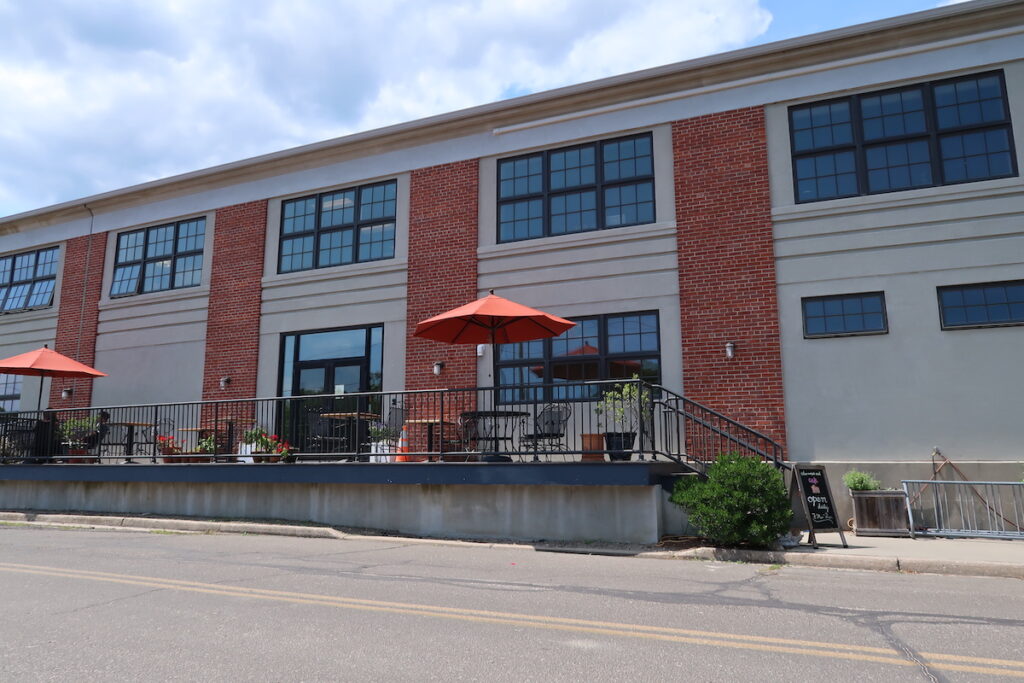Tracking town’s fuel use in cyberspace

KATHARINE SCHROEDER PHOTO
Councilman Bill Ruland explains the current method of recording fuel use in town, collecting paper slips in a wooden box next to the fuel tank. He suggests the town consider upgrading to a new computerized system.
Southold Town spends about $1 million a year on fuel for cars, trucks and heavy equipment, but keeps track of it with little scrawled notes that drivers place in wooden boxes at each of the town’s fueling stations. The notes are intended to tell the town’s accounting office where the fuel has gone.
Town Councilman Bill Ruland wants to change that system. Last week, the town board put his suggestion in motion by authorizing a bond of up to $230,000 and a request for proposals for a new fuel management system.
In the system proposed by Mr. Ruland — who is also working on a plan to streamline the town’s fleet and use more vehicles that can use alternative fuels — a ring, as he described it, would be placed around the nozzles of pumps at the town’s three fueling stations at the highway, sanitation and police departments. The pumps would be equipped with wireless data transmitters and the rings, which would contain transceivers to connect through a wireless network to the town’s accounting office, could track not only who had pumped how much fuel into what vehicle but also run diagnostic checks on the health of the vehicle if a transmitter chip were installed in each vehicle’s diagnostic system.
“We’re at the tire-kicking stage. We know the system we would like, but we really don’t know what it costs,” said Mr. Ruland at a work session on Aug. 10.
The new system, he hoped, would enable the town to produce a computerized record of necessary maintenance that individual employees may not be aware of as they go about their work.
“I’m not a big proponent of technology, but your own car talks to you when you get in it,” he said. But when different people use different cars every day, they may not notice any problems. “We have a situation where we have 150 over-the-road vehicles that are used by four to five people a day. Any one person can get in a car and not know what’s wrong.”
Mr. Ruland said he doesn’t believe there’s been any theft of gasoline by town employees, but with such loose accounting methods it’s difficult to know for sure. He added that he once knew a county employee who bragged about bringing several gallons of heating oil home from work each day, but had never been caught.
Though the town has just 250 employees, it has 300 pieces of mechanized equipment, most of which run on fossil fuels, said Mr. Ruland. Cars are heavily used, particularly in the police department, where vehicles are transferred to different drivers over the course of three daily shifts.
The second largest fleet belongs to human resources, which requires a network of reliable buses to transport seniors and cars to deliver meals to shut-ins.
The system Mr. Ruland would like to use would also include gas cans that would record the amount of fuel used by lawn-mowing crews and others working with other small gas-powered machines.
Members of the Town Board were all enthusiastic about the program.
“I don’t think there’s any fear here that you’re going to be called ‘Dollar Bill’ Ruland,” said Supervisor Scott Russell.








